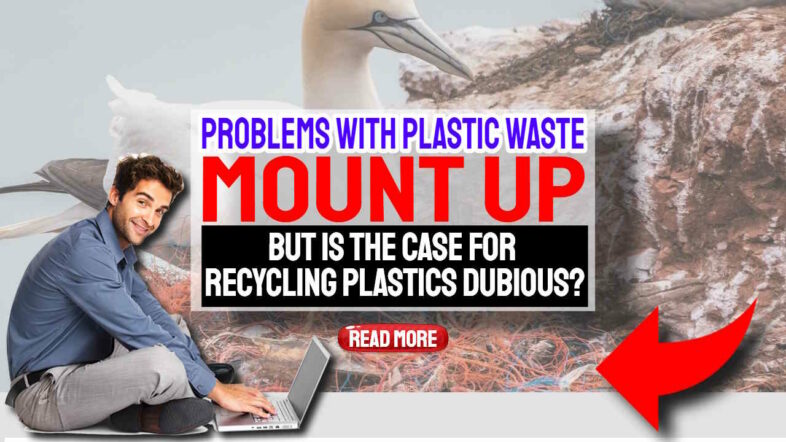In this article, we set ourselves the task of describing the many problems with plastic. How plastic waste mounts up. The solution might, at first sight, would appear to lie in recycling it. But is the case for recycling plastics a dubious one? So far, plastic waste recycling has not gone well at all!
With the recent publicity brought by the recent Blue Planet BBC series, in which a mother whale was seen to be mourning the death of her offspring killed by plastic waste in the ocean, many people are looking again at the use of plastics. In this article, we look at what is being said, but first, let us explain why you should be concerned if you love nature and care about wildlife.
Awakening the World to Marine Plastic Pollution: BBC’s Blue Planet II
In 2017, BBC’s Natural History Unit graced the world with a poignant and profound documentary series titled “Blue Planet II”. This enchanting sequel to the original “Blue Planet” series, narrated by the venerable Sir David Attenborough, allowed viewers to delve into the captivating world beneath the waves, offering an intimate, sometimes harrowing, portrayal of life in our oceans.
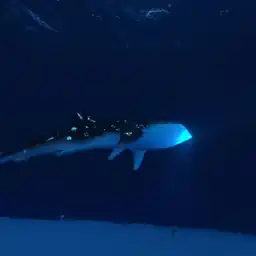 One of the most heart-rending moments in this series came in the second episode, “The Deep”. Here, viewers were confronted with the story of a mother pilot whale mourning her dead calf, which scientists believed had died due to toxins from plastic pollution. This moment, tragically beautiful in its raw demonstration of animal emotion, echoed loudly across the globe. The sight of a mother cradling her lifeless young in the depths of the clear, blue ocean was a harsh reminder of the consequences of human recklessness.
One of the most heart-rending moments in this series came in the second episode, “The Deep”. Here, viewers were confronted with the story of a mother pilot whale mourning her dead calf, which scientists believed had died due to toxins from plastic pollution. This moment, tragically beautiful in its raw demonstration of animal emotion, echoed loudly across the globe. The sight of a mother cradling her lifeless young in the depths of the clear, blue ocean was a harsh reminder of the consequences of human recklessness.
Regrettably, this was not an isolated incident. Many marine creatures have been found with plastic wounds, while others have ingested a shocking amount of plastic debris. Sea turtles have been discovered with plastic straws lodged in their nostrils, seals strangled by discarded fishing nets, and birds with stomachs full of plastic, mistaken for food. Even the massive sperm whales washing ashore have not been spared, with autopsies revealing up to 30 plastic bags in their stomachs.
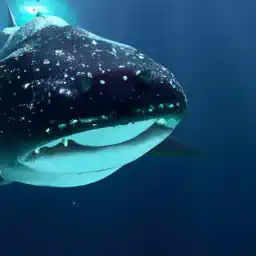 The implications of these sad realities are even more dire when one considers the invasion of microplastics in our oceans. Microplastics, tiny fragments less than 5mm in size, originate from larger plastic debris breaking down, cosmetic beads, and synthetic fabrics. They are ubiquitous, found in every corner of our oceans, from the deepest trenches to the remotest arctic ice. These invisible invaders are ingested by marine life, potentially causing harm to these animals and entering the food chain, with unknown consequences for larger predators, including humans.
The implications of these sad realities are even more dire when one considers the invasion of microplastics in our oceans. Microplastics, tiny fragments less than 5mm in size, originate from larger plastic debris breaking down, cosmetic beads, and synthetic fabrics. They are ubiquitous, found in every corner of our oceans, from the deepest trenches to the remotest arctic ice. These invisible invaders are ingested by marine life, potentially causing harm to these animals and entering the food chain, with unknown consequences for larger predators, including humans.
Blue Planet II succeeded in bringing these urgent matters into our living rooms in an unprecedented manner. The distressing narrative, combined with breathtaking imagery and gripping storytelling, stirred a global conversation about our relationship with the oceans and our responsibility to protect them.
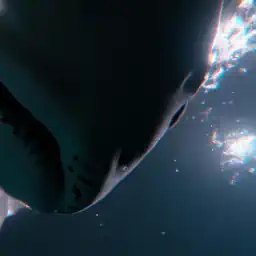 The series was particularly instrumental in raising awareness about plastic pollution. It inspired a global anti-plastic movement, with countries and corporations pledging to reduce their use of single-use plastics. The series’ impact even led to a phenomenon coined as the “Blue Planet II effect”, where the increased awareness has led to significant changes in policies and behaviours.
The series was particularly instrumental in raising awareness about plastic pollution. It inspired a global anti-plastic movement, with countries and corporations pledging to reduce their use of single-use plastics. The series’ impact even led to a phenomenon coined as the “Blue Planet II effect”, where the increased awareness has led to significant changes in policies and behaviours.
While the series concluded, the issue it illuminated remains critical. Plastic pollution continues to inflict terrible harm on our marine life and the ecosystems they inhabit. In honour of the mother whale and her calf and the countless other victims of plastic pollution, it’s incumbent on us all to reduce, reuse, recycle, and rethink our relationship with plastic. Only then can we hope to restore the pristine beauty of our Blue Planet.
There are many problems stacking up against the use of plastics, and unfortunately, there is no easy option, due to the non-biodegradable nature of plastics.
Problems with Plastic Waste Mount-Up: But Is the Case for Recycling Plastics Dubious?
The dialogue around the issue of plastic waste is both complicated and multifaceted. While it’s undisputed that plastic plays a pivotal role in several sectors of society, its adverse effects on our environment are too stark to ignore.
Let’s delve into the plastic conundrum, examining the challenges posed by its waste and recycling as well as its undeniable benefits.
The Woes of Plastic Waste
Plastic Pollution in the Land
According to research, a whopping 8.3 billion metric tons of plastic have been produced since its inception, with 6.3 billion metric tons ending up as waste. To paint a vivid picture:
- This weight is equivalent to approximately 25,000 Empire State Buildings or 1 billion elephants.
- Only about 9% of this waste has been recycled, 12% has been incinerated, and an alarming 79% has ended up in landfills or littering the natural environment.
Microplastics
One of the insidious forms of plastic pollution is microplastics – tiny fragments less than 5mm long, which are either manufactured small (microbeads in cosmetics) or result from the degradation of larger items. Microplastics:
- Accumulate in soil, with a potential impact on terrestrial ecosystems.
- Affect soil fertility by disrupting beneficial soil microbes.
- Can enter the food chain, with unclear long-term health effects.
Plastic Waste in the Seas
An estimated 8 million metric tons of plastic enter our oceans each year. This massive influx causes significant problems:
- Marine life, such as turtles, seabirds, and whales, often mistake plastic debris for food, leading to ingestion and entanglement.
- Microplastics are consumed by marine organisms, posing threats to the entire marine food chain, including humans.
- Plastic waste alters habitats and transports harmful species and pollutants around the globe.
Plastic Pollution in the Air
Though less recognized, plastic’s contribution to air pollution is worth noting. It stems from two primary sources:
- The production and incineration of plastic contribute to air pollution by releasing harmful chemicals such as VOCs, particulates, and greenhouse gases.
- Microplastic fibres, disintegrated from larger plastic items, can become airborne and inhaled.
The Recycling Quandary
Despite the grim picture painted by plastic waste, recycling is not the panacea we would hope. Recycling plastics is an energy-intensive and cost-ineffective process due to several challenges:
- Contamination: Plastic recycling is hampered by contamination from food waste, other types of plastic, and general waste.
- Downcycling: Recycled plastic often degrades in quality, meaning it can’t be reused for the same purpose.
- Recycling infrastructure: The lack of effective recycling systems in many parts of the world means much of our plastic waste ends up in landfills, incinerated, or in the environment.
Recognizing the Benefits of Plastic
Despite its many challenges, it’s vital to acknowledge plastic’s crucial role in various aspects of life:
Hygiene and Healthcare
- Single-use plastics in medical equipment, such as syringes and IV bags, prevent cross-contamination and infection.
- Plastic packaging for food and personal care products offers a hygienic barrier against contaminants.
Food Preservation
- Plastic packaging extends the shelf-life of food, helping to reduce food waste.
- The lightweight nature of plastic makes the transportation of goods more energy-efficient.
To stop using plastic packaging and simply adopt inferior materials would have serious global consequences for global health, and impact disproportionately negatively on the poor.
Conclusion: A Balanced Viewpoint
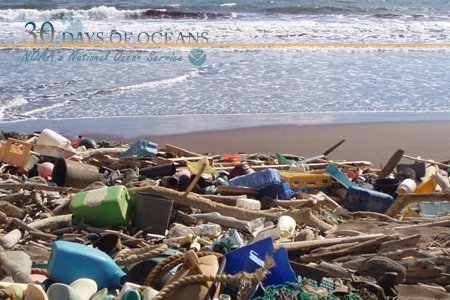
In grappling with the plastic issue, it’s clear we face a conundrum. The benefits plastic provides, especially in healthcare and food preservation, cannot be overlooked. Yet, the environmental problems stemming from our reliance on this material are too significant to ignore. Reaching a sustainable solution will require a multipronged approach:
- Better recycling technologies: Improved methods to recycle plastic into high-quality, reusable materials could reduce the need for new plastic production and reduce plastic waste.
- Alternatives to plastic: Investment in research and development of environmentally friendly alternatives to plastic is crucial. Biodegradable or compostable materials could provide similar benefits without the long-term environmental costs.
- Reduce, Reuse, Rethink: Society needs to shift its mindset towards plastic consumption. Cutting down on single-use plastics, reusing items where possible, and considering the full lifecycle of plastic products can reduce the demand and subsequent waste generated.
Our relationship with plastic is not black and white.
It’s a complex weave of societal needs, environmental concerns, and technological advancements.
If we are to find balance, it must come through informed choices, innovative solutions, and a commitment to safeguarding our environment while meeting the needs of our global community.
This is our collective challenge and responsibility. Read more at the Depackaging Equipment website here.
[This post was first published on 7 March 2018. The current post is a new article.]
